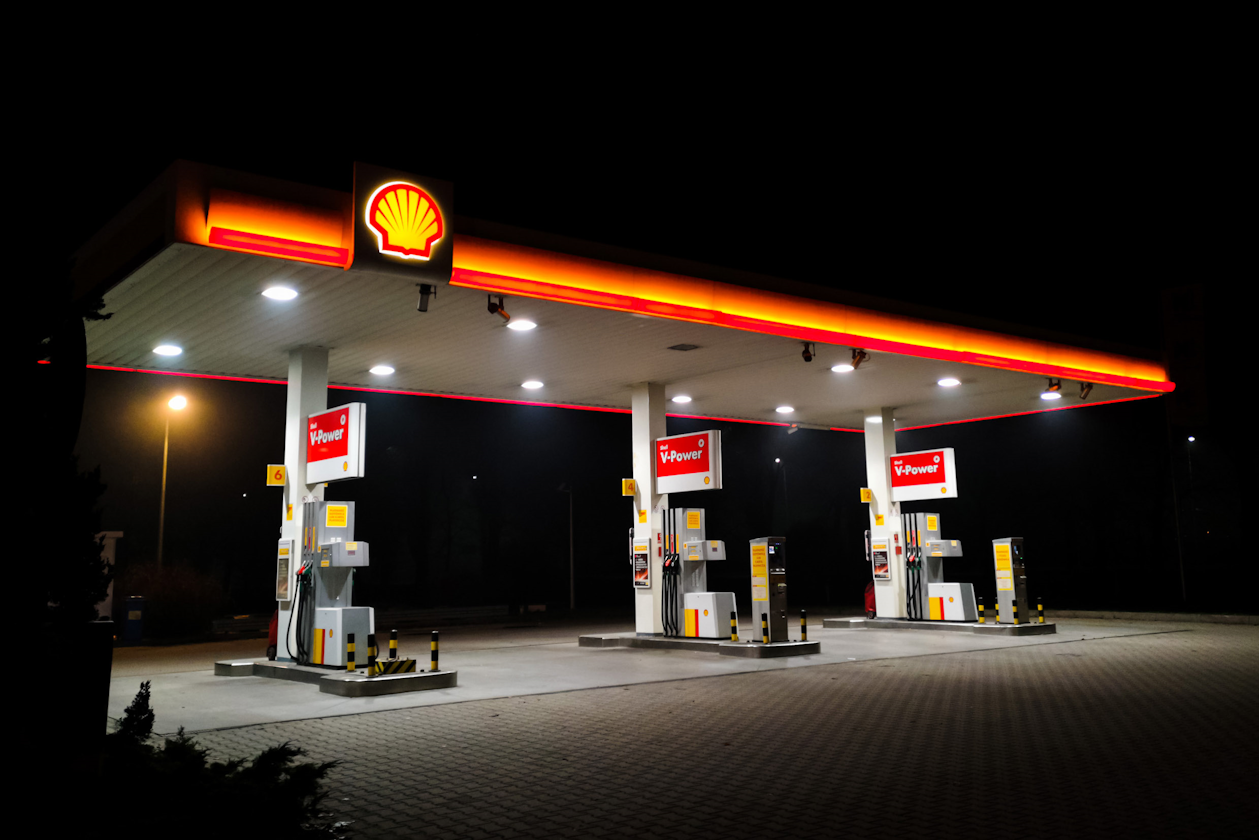Shell’s third quarter revenue fell from $71.1bn to $68.2bn with falls seen in the Upstream, Marketing and Chemicals & Products divisions.
Underlying net profit fell 10% year-on-year but came in ahead of both the previous quarter and market forecasts. Most of the beat came from the upstream division and a good performance in Integrated Gas.
Free cash flow fell $0.9bn to $10.0bn, while net debt fell by $2.0bn over the quarter to $41.2bn.
Shell declared an interim dividend of $0.358 and has commenced a quarterly share buyback of $3.5bn.
In the final quarter upstream and integrated gas production looks set to stay broadly unchanged, with Liquified Natural Gas volumes set to rise from 7.3 million tonnes to 7.4-8.0 million tonnes due to a ramp up in Canada.
The shares were flat in early trading.
Our view
Shell’s profits recovered more than expected in the third quarter, but a fall in oil prices on results day kept investor enthusiasm in check. Shell’s main focus remains very much on fossil fuels. With the company’s production of the black stuff set to stay stable through to 2030, oil prices will remain an unpredictable but crucial element of the group’s fortunes. Recent moves in the right direction are welcome, but there’s plenty of scope for further volatility.
However, Shell's not a one-trick pony. It’s the market leader in terms of Liquefied Natural Gas (LNG), which may benefit from growth drivers such as the drive for energy independence, rising usage in heavy-duty transport, and waning popularity of coal in power generation. And in volatile times, its trading and optimisation divisions operations can be very lucrative.
In distribution, Shell is particularly well placed to provide lower-carbon options to motorists. Its global network of 47,000 service stations is the largest of all the oil majors. Its EV charging footprint has been growing rapidly, but the focus is changing to profitability rather than scale.
Strong financials enable it to self-fund the significant organic investment required to replace oil reserves and pursue renewable energy and low-carbon fuel initiatives. Shell continues to tweak its portfolio, recently scrapping plans for a major biofuel development in the Netherlands on concerns over the project’s competitiveness, and divesting its investment in pipeline operator Colonial Enterprises for a profit of $0.8bn.
Shell invests over $20bn each year across its business, and that’s set to stabilise at between $20-22bn out to 2028. A strong balance sheet and renewed efficiency drive underpins an increase in targeted returns to shareholders of 40-50% of operating cash flow over the cycle. That should allow for annual dividend increases of 4% and continued buybacks of around $3.5bn per quarter as long as oil prices remain above $60 per barrel and here there can be no guarantees.
Like the rest of the sector, Shell’s fortunes remain linked to movements in commodity prices. However, strong cash generation, a robust balance sheet, and a well-run trading division mean we think it’s relatively well placed to cope with some volatility in the oil price, and one of the stronger names in the sector. Its consistent focus on shareholder value has seen the valuation creep above the long-term average, but the yield remains attractive, and there could still be some upside on offer if it can meet market forecasts.
Environmental, social and governance (ESG) risk
Environmental concerns are the primary driver of ESG risk for oil and gas producers, with carbon emissions and waste disposal being the main issues. Health and safety, community relations and ethical governance are also contributors to ESG risk.
According to Sustainalytics, Shell's management of material ESG issues is strong.
This reflects a change in its business mix over recent years towards lower carbon fuels such as gas and LNG, and the exit from some of its more controversial assets. Despite Shell's numerous environmental and social targets, the company's impact on the environment and society remains relatively high. The decision to hold oil production steady till the end of the decade is likely to be met with some disappointment.
Controversies relating to environmental degradation, bribery and corruption, and community relations continue to play an important role in how Shell is perceived globally, as well as its financial disclosures around its renewables business.
Shell key facts
All ratios are sourced from LSEG Datastream, based on previous day’s closing values. Please remember yields are variable and not a reliable indicator of future income. Keep in mind key figures shouldn’t be looked at on their own – it’s important to understand the big picture.
This article is original Hargreaves Lansdown content, published by Hargreaves Lansdown. It was correct as at the date of publication, and our views may have changed since then. Unless otherwise stated estimates, including prospective yields, are a consensus of analyst forecasts provided by LSEG. These estimates are not a reliable indicator of future performance. Yields are variable and not guaranteed. Investments rise and fall in value so investors could make a loss.
This article is not advice or a recommendation to buy, sell or hold any investment. No view is given on the present or future value or price of any investment, and investors should form their own view on any proposed investment.


